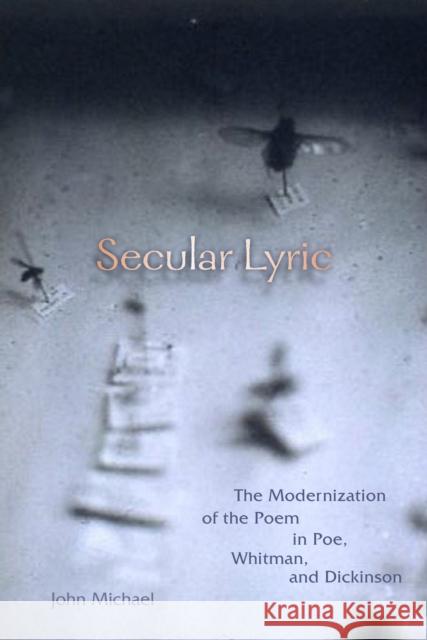Secular Lyric: The Modernization of the Poem in Poe, Whitman, and Dickinson » książka
Secular Lyric: The Modernization of the Poem in Poe, Whitman, and Dickinson
ISBN-13: 9780823279715 / Angielski / Twarda / 2018 / 256 str.
Secular Lyric: The Modernization of the Poem in Poe, Whitman, and Dickinson
ISBN-13: 9780823279715 / Angielski / Twarda / 2018 / 256 str.
(netto: 483,13 VAT: 5%)
Najniższa cena z 30 dni: 502,10
ok. 30 dni roboczych.
Darmowa dostawa!
In Secular Lyrics, Michael interrogates the distinctively individual ways that Poe, Whitman, and Dickinson adapt ancient and renaissance conventions of lyric expression to the developing conditions of their modern context, and especially to the heterogeneity of beliefs and believers in a secular society and to the altered or emergent role that literature assumes in a secular age. In close readings of Poe, Whitman, and Dickinson, Michael analyzes how each of these poets registers the pressures and possibilities of thesechanges in the contexts and audiences for poetry within the transformative tropes and rhetorical textures of their poems. Especially Michael shows how each of these poets, in idiosyncratic but related ways, registers the pressures of the modern crowd--which Benjamin rightly identified as nineteenth-century poetry's essential topic--within their poems, where the mass appears as potential readers, as resistant skeptics, as a heterogeneous crowd of contending beliefs and contentious believers. (Here Michael engages Charles Taylor's redefinitions of secularity in his epochal A Secular Age and recent debates about the secularity or post-secularity of literature and criticism in our present moment.) These nineteenth-century poets (unlike their more conventional contemporaries) cannot imagine credibly advising, authoritatively sermonizing, or effectively consoling the mass, heterogeneous audience they confront. For them, the processes of signification rather than the communication of truths become central to their poetry, which in turn becomes an important origin of the modern poetry that in Europe and the United States follows. Each invokes the normative practices that have long characterized Western poetry only to disrupt the audience's conventional expectations and enliven the reader's sense of language's material density and the limits and potentials of modern life. What Kristeva, years ago, identified as a revolution in poetic language begins not with Mallarme but with Poe, Whitman, and Dickinson, in their attempts to create a space for literature in the modern, secular era they sensed stirring the atmosphere around them.











